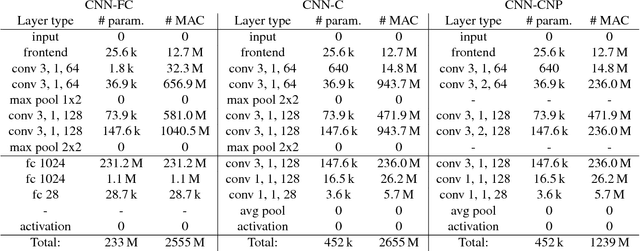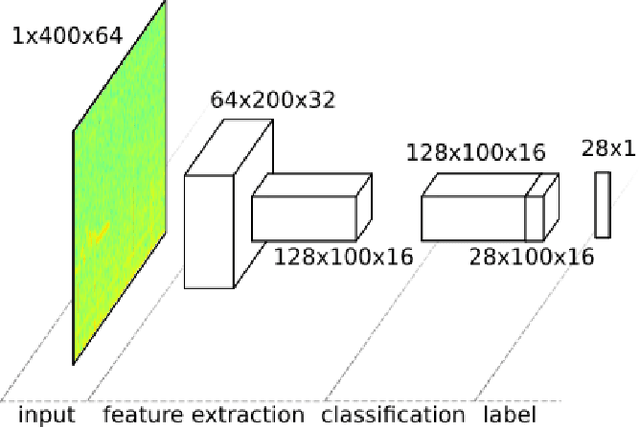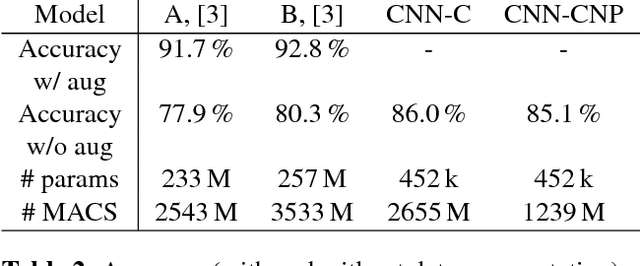Efficient Convolutional Neural Network For Audio Event Detection
Paper and Code
Sep 28, 2017



Wireless distributed systems as used in sensor networks, Internet-of-Things and cyber-physical systems, impose high requirements on resource efficiency. Advanced preprocessing and classification of data at the network edge can help to decrease the communication demand and to reduce the amount of data to be processed centrally. In the area of distributed acoustic sensing, the combination of algorithms with a high classification rate and resource-constraint embedded systems is essential. Unfortunately, algorithms for acoustic event detection have a high memory and computational demand and are not suited for execution at the network edge. This paper addresses these aspects by applying structural optimizations to a convolutional neural network for audio event detection to reduce the memory requirement by a factor of more than 500 and the computational effort by a factor of 2.1 while performing 9.2% better.
 Add to Chrome
Add to Chrome Add to Firefox
Add to Firefox Add to Edge
Add to Edge